Rewire the Anxious Brain-Neuroscience-Informed Treatment of Anxiety, Panic and Worry – Hannah Smith
Original price was: $219.99.$61.00Current price is: $61.00.
Rewire the Anxious Brain-Neuroscience-Informed Treatment of Anxiety, Panic and Worry – Hannah Smith has the same quality as the author’s salapage.
Salepage link: At HERE. Archive:
- Faculty:
- Hannah Smith
- Duration:
- 6 Hours 6 Minutes
- Format:
- Audio and Video
- Copyright:
- May 06, 2020
Description
Join Hannah Smith in this recording and learn her keys for successful anxiety treatment. Hannah integrates brain-based strategies for calming the anxious mind with client communication techniques that motivate change in your clients. Her approach promotes adherence to treatment and strengthens the therapeutic alliance – which is essential when working with anxious, worried, traumatized, or obsessive clients.
Hannah will give you tools and techniques to:
- Identify and treat the roots of anxiety in both the amygdala and the cortex
- Explain “the language of the amygdala” in an accessible, straight forward way
- Identify how the cortex contributes to anxiety, and empower clients with strategies to resist anxiety-igniting cognitions
Purchase this transformational workshop and put the power of neuroplasticity to work for you and your anxious clients!
Handouts
| Manual – Rewire the Anxious Brain (12.8 MB) | 112 Pages | Available after Purchase | |
| Illinois Educators Self-study Instructions (28.5 KB) | Available after Purchase | ||
| Illinois Educators Evaluation Form (1.2 MB) | Available after Purchase |
Outline
Use Neuroscience in the Treatment of Anxiety
Positives:
- We know more about anxiety-based disorders than any other disorders
- Science gives explanations, evidence, authority, destigmatizes difficulties
Concerns:
- It can be difficult to explain, answer questions
- Clients may feel a lack of responsibility
- Oversimplification is inevitable
Enhancing Engagement in Treatment
- Don’t neglect the therapeutic relationship!
- Address the challenges of anxious clients
- Remember that strategies are effortful
- Guide the process using client’s goals
- Maintain motivation
Neuroplasticity
- Define Neuroplasticity in everyday language
- Therapy is about creating a new self
- ”Rewiring” as an accessible concept for change
- Re-consolidation: the modification of emotional memories
Identify Two Neural Pathways to Anxiety
- Amygdala – bottom-up triggering of emotion, physicality of anxiety
- Cortex – top-down emotion generation based in cognition
- Explain the two pathways to clients
- How anxiety is initiated in each pathway and how pathways influence each other
Client Friendly Explanations
- Use illustrations to create concrete understanding
- Fight/flight/freeze responses
- The “language of the amygdala”
- Anxiety and the cortex
- Help clients recognize the two pathways to anxiety
Neuroplasticity in the Amygdala (Essential for all Anxiety Disorders, PTSD, OCD, Depression)
- Sleep and the amygdala
- The influence of exercise
- Breathing techniques to reduce activation
- Relaxation, meditation, and yoga to modify responses
- Exposure as opportunities for the amygdala to learn
- Combatting avoidance
- When anxiety indicates that the amygdala can learn new responses
- Push through anxiety to change the amygdala
Neuroplasticity in the Cortex (Essential for GAD, SAD, OCD, PTSD, Depression)
- ”Survival of the busiest” principle – strengthen or weaken specific circuitry
- The healthy (adaptive) use of worry in the cortex
- ”You can’t erase: You must replace”
- Recognize and modify the impact of uncertainty
- Training correct uses of distraction
- Left hemisphere techniques – cognitive defusion, coping thoughts, fighting anticipation
- Right hemisphere techniques – imagery, music
- Mindfulness and anxiety resistances
Neuroplasticity and Medications for Anxiety Disorders, OCD, PTSD, Depression
- Medication’s effects in the rewiring process
- The myth of the chemical imbalance
- The danger of sedating the brain with benzodiazepines
- Promoting neuroplasticity with SSRIs, SNRIs
- The effectiveness of CBT and meds
Moving Beyond Diagnostic Categories to Focus on Anxiety Pathways
- Anxiety is a component of many diagnoses (depression, substance abuse, etc.)
- Amygdala – and cortex-based techniques help in other disorders
- Targeting brain-based symptoms rather than disorders
- Worry, obsessions, rumination respond to similar cortex-based techniques
- Panic, phobic responses, and compulsions respond to amygdala-based techniques
Research, Risks and Limitations
- Empirical versus clinical and anecdotal evidence
- Clinical considerations for specific clients and settings
- Efficacy of particular interventions may vary
Faculty

Hannah Smith Related seminars and products: 2
Potential Finders
Hannah Smith, MA, LMHC, CGP, is the founder of Potential Finders and is the group therapy program coordinator in a top partial-hospital rehabilitation treatment center in the Seattle area. She holds Masters degrees in both special education and counseling psychology and has nearly 20 years of experience both in the US and abroad. Her educational work has been with disorders of cognition and communication, where the role of the brain in learning and memory were primary areas of focus. Clinically, her practice is primarily devoted to the treatment of people recovering from trauma and anxiety disorders. Her experience, both personally and professionally, has allowed her to develop an expertise in incorporating neuroscience into therapeutic interventions in innovative ways. Hannah guest lectures in academic and clinical settings on a variety of topics related to neuroscience and the treatment of anxiety, trauma, and emotion regulation. She is an engaging presenter whose passion is to educate clinicians on practical, whole-person approaches and applications in therapy.
Speaker Disclosures:
Financial: Hannah Smith is the clinical supervisor at The Center; A Place of Hope. She receives a speaking honorarium from PESI, Inc.
Non-financial: Hannah Smith has no relevant non-financial relationship to disclose.
Here's an overview of the prominent keywords and a list of famous authors:
Business and Sales: Explore business strategies, sales skills, entrepreneurship, and brand-building from authors like Joe Wicks, Jillian Michaels, and Tony Horton.
Sports and Fitness: Enhance athleticism, improve health and fitness with guidance from experts like Shaun T, Kayla Itsines, and Yoga with Adriene.
Personal Development: Develop communication skills, time management, creative thinking, and enhance self-awareness from authors like Gretchen Rubin, Simon Sinek, and Marie Kondo.
Technology and Coding: Learn about artificial intelligence, data analytics, programming, and blockchain technology from thought leaders like Neil deGrasse Tyson, Amy Cuddy, and Malcolm Gladwell.
Lifestyle and Wellness: Discover courses on holistic health, yoga, and healthy living from authors like Elizabeth Gilbert, Bill Nye, and Tracy Anderson.
Art and Creativity: Explore the world of art, creativity, and painting with guidance from renowned artists like Bob Ross and others.
All the courses on WSOlib are led by top authors and experts in their respective fields. Rest assured that the knowledge and skills you acquire are reliable and highly applicable.
Specification: Rewire the Anxious Brain-Neuroscience-Informed Treatment of Anxiety, Panic and Worry – Hannah Smith
|
User Reviews
Only logged in customers who have purchased this product may leave a review.

Original price was: $219.99.$61.00Current price is: $61.00.

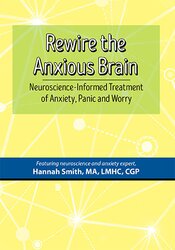





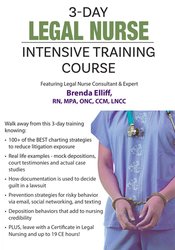
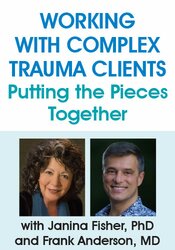
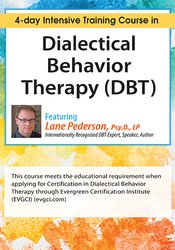
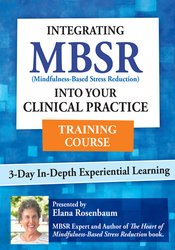
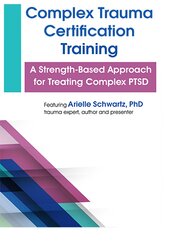
There are no reviews yet.